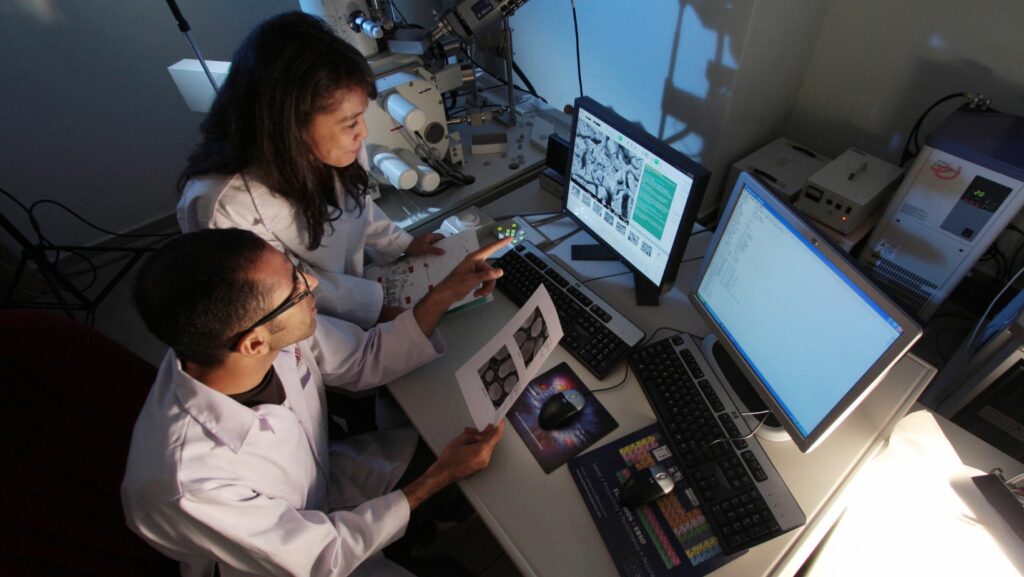Key Takeaways
- Interdisciplinary Focus: A Bachelor of Science in Industrial Engineering combines engineering principles with management strategies, emphasizing process optimization and efficiency across various industries.
- Diverse Curriculum: The program includes core courses like operations research and quality control, as well as electives that allow students to specialize in areas such as project management and data analytics.
- Growing Demand: Graduates are in high demand across sectors such as manufacturing, logistics, healthcare, and technology, addressing complex challenges through data-driven solutions.
- Skill Development: Students develop a robust set of both technical skills (data analysis, simulation modeling) and essential soft skills (problem-solving, communication) that are critical for workplace success.
- Career Versatility: Graduates can pursue numerous roles, including process engineer, quality assurance engineer, and project manager, unlocking diverse career pathways.
- Real-World Application: Practical experience through internships enhances learning, equipping students with the ability to apply theoretical concepts to real-world problems effectively.
Industrial engineering stands at the intersection of engineering, management, and optimization. With a Bachelor of Science in Industrial Engineering, students gain the skills to streamline processes, enhance productivity, and improve systems across various industries. This degree equips graduates with a unique blend of technical knowledge and analytical prowess, making them invaluable assets in today’s competitive job market.
As organizations strive for efficiency and innovation, the demand for industrial engineers continues to grow. They tackle complex challenges in manufacturing, logistics, and service sectors, using data-driven approaches to solve problems. Pursuing this degree not only opens doors to diverse career opportunities but also empowers individuals to make a significant impact in their chosen fields.
Bachelor of Science Industrial Engineering
 Bachelor of Science in Industrial Engineering focuses on optimizing systems and processes across various industries. This degree program combines core engineering principles with management strategies, emphasizing efficiency and productivity. Students gain knowledge in areas such as operations research, quality control, supply chain management, and ergonomics.
Bachelor of Science in Industrial Engineering focuses on optimizing systems and processes across various industries. This degree program combines core engineering principles with management strategies, emphasizing efficiency and productivity. Students gain knowledge in areas such as operations research, quality control, supply chain management, and ergonomics.
Coursework typically includes mathematics, physics, and computer science, along with specialized industrial engineering topics. Practical experience through internships or cooperative education enhances learning and provides real-world applications of theoretical concepts.
Graduates become proficient in data analysis, problem-solving, and critical thinking, equipping them to address today’s complex industrial challenges. The interdisciplinary nature of the program prepares them for roles in diverse sectors, including manufacturing, logistics, healthcare, and technology.
The program also encourages collaboration, communication, and leadership skills, essential for managing teams and projects effectively. As industries evolve, industrial engineers play a vital role in implementing efficient systems and improving overall operational performance.
Curriculum Structure
 The Bachelor of Science in Industrial Engineering program offers a comprehensive curriculum designed to provide students with a strong foundation in both engineering principles and management practices. This curriculum comprises core courses and elective courses, enabling students to tailor their education to specific interests. Core courses form the backbone of the curriculum, focusing on essential topics that define the field of industrial engineering. Common core courses include:
The Bachelor of Science in Industrial Engineering program offers a comprehensive curriculum designed to provide students with a strong foundation in both engineering principles and management practices. This curriculum comprises core courses and elective courses, enabling students to tailor their education to specific interests. Core courses form the backbone of the curriculum, focusing on essential topics that define the field of industrial engineering. Common core courses include:
- Mathematics: Topics in calculus and statistics, essential for data analysis and optimization.
- Physics: Fundamental principles that govern engineering systems and processes.
- Operations Research: Techniques for decision-making and problem-solving in complex systems.
- Quality Control: Methods to ensure products and processes meet defined standards.
- Manufacturing Processes: Insights into various production techniques and their efficiencies.
- Supply Chain Management: Strategies for effectively managing the flow of goods and services.
- Human Factors and Ergonomics: Study of optimizing systems for human use.
These courses prepare students to analyze and improve systems, fostering critical thinking and problem-solving skills.
Elective Courses
Elective courses offer students the opportunity to explore specialized topics within industrial engineering. Popular elective courses include:
- Project Management: Skills for planning and executing engineering projects successfully.
- Simulation Modeling: Tools for and techniques in simulating real-world processes to evaluate performance.
- Data Analytics: Techniques for analyzing large data sets to support decision-making.
- Sustainable Engineering: Concepts to design processes that minimize environmental impact.
- Healthcare Systems Engineering: Application of industrial engineering principles to improve healthcare delivery.
Electives enable students to focus on career-related interests, enhancing their expertise and employability in specific sectors.
Career Opportunities
A Bachelor of Science in Industrial Engineering offers diverse career opportunities across various sectors. Graduates can choose from roles that leverage their skills in process optimization, data analysis, and project management.
Industry Sectors
Industrial engineers find employment in numerous industry sectors, including:
- Manufacturing: Optimizing production processes to enhance efficiency and reduce costs.
- Logistics: Streamlining supply chains and improving distribution networks to ensure timely delivery.
- Healthcare: Enhancing patient care systems and operational workflows in hospitals and clinics.
- Technology: Analyzing systems and improving user experience in software development and IT services.
- Consulting: Offering expertise in optimizing business processes for various clients across industries.
- Process Engineer: Developing methods to optimize manufacturing processes for improved efficiency.
- Quality Assurance Engineer: Implementing and monitoring quality control systems to ensure product standards.
- Supply Chain Analyst: Evaluating supply chain data to optimize inventory management and reduce costs.
- Operations Manager: Overseeing daily operations to improve production efficiency and manage resources effectively.
- Data Analyst: Utilizing statistical tools to analyze data and support decision-making processes.
- Project Manager: Leading projects from conception to completion, ensuring they meet time, budget, and quality requirements.
Skills Developed
A Bachelor of Science in Industrial Engineering cultivates a diverse skill set vital for analyzing systems and enhancing operational efficiency. Students master both technical and soft skills, equipping them for various professional challenges.
Technical Skills
Graduates develop a robust foundation in technical skills essential for industrial engineering roles. They gain proficiency in:
- Data Analysis: Students learn to interpret complex data sets using statistical tools and software, leading to informed decision-making.
- Operations Research: They acquire techniques for optimizing processes, using mathematical modeling and algorithms to improve efficiency.
- Quality Control: Graduates grasp methodologies for ensuring product and process quality, implementing quality management systems.
- Simulation Modeling: They’re trained to create simulations that predict outcomes in complex systems, enabling effective planning and resource allocation.
- Supply Chain Management: Knowledge of logistics and supply chain principles allows graduates to streamline operations and reduce costs.
- Project Management: Students gain skills in organizing, planning, and executing projects within time and budget constraints.
Soft Skills
Alongside technical capabilities, graduates also enhance critical soft skills that improve workplace effectiveness. They develop:
- Problem-Solving: Graduates excel in identifying issues, analyzing root causes, and devising innovative solutions.
- Communication: They obtain strong verbal and written communication skills, essential for collaborating with diverse teams and stakeholders.
- Collaboration: Graduates learn to work effectively in teams, fostering a cooperative work environment that enhances productivity.
- Leadership: They cultivate leadership abilities, preparing them to manage projects and guide teams successfully.
- Critical Thinking: Students enhance their analytical thinking skills, allowing them to evaluate options and implications thoroughly.
- Adaptability: Graduates become adept at adjusting to changing environments and requirements, essential in fast-paced industries.
This unique combination of technical and soft skills prepares graduates for success across various sectors, making them valuable assets in any organization.
A Bachelor of Science in Industrial Engineering offers a robust foundation for those looking to excel in a dynamic and evolving job market. Graduates emerge with a unique blend of technical and soft skills that empower them to tackle complex challenges across various industries. Their ability to optimize processes and enhance productivity makes them indispensable in sectors like manufacturing, healthcare, and technology.
As industries continue to adapt and grow, the demand for skilled industrial engineers will only increase. This degree not only opens doors to diverse career paths but also positions graduates to make significant contributions to their organizations and society as a whole. Embracing this educational journey means stepping into a world of opportunities where impactful problem-solving and innovation thrive.



